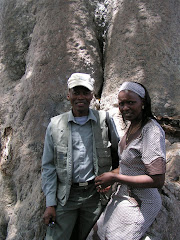The object of the new Children’s Act is not only to give effect to Botswana’s obligations in terms of United Nations Convention on the Rights of the Child, and the African Charter on the Rights and Welfare of the Child regarding the well-being of children, but also to promote well-being of families and communities in Botswana as espoused by our Vision 2016.
The new Act provides for the facilitation of the respect, protection, promotion and provision of the realisation of child rights. The Act will further contribute to the survival, development, participation, and protection of the current and future children in Botswana in compatibility with the Convention on the Rights of the Child and the African Charter on the Rights and Welfare of the Child, all of which Botswana has acceded to.
Background Information
The Children’s Act of 1981 mainly addresses custody, care, juvenile justice, and aspects of child protection. Over the past 28 years, this country has encountered many new challenges, ranging from the HIV/AIDS scourge, rapid urbanization, child abuse, increase in single parenthood and the emergence of child headed households. These challenges have made the Children’s Act of 1981 inadequate and defective because it falls short of the provisions on children’s rights and responsibilities, hence the decision to review it and make it more holistic to address all the issues of child protection.
The need to finalise the amendment of the Act was amongst the notable recommendations from the United Nations Committee on the Rights of the Child in 2004. The committee noted with appreciation the comprehensive review of the Children’s Act of 1981 with a view to harmonizing it with the provisions of the Convention on the Rights of the Child and the African Charter on the Rights and Welfare of the Child. The committee was concerned that “this process has been slow and that the current Act is outdated and does not fully take into account the Convention’s principles and provisions.
In developing the new Children’s Act of 2009, the Ministry of Local Government in collaboration with UNICEF, established a Multi-sectoral Reference Group, the Key Stakeholders’ Forum and a Children’s Consultative Forum for a more participatory process. The Local Authorities and Members of Parliament have been consulted in drafting the Bill. The then Minister of Local Government have also had the opportunity to address kgotla meetings in some villages on the Bill.
Some Parts of the Act
Part II definitively sets out the objects and guiding principles of the Children’s Act of 2009, the paramount principle being that in the performance of the functions of the various authorities tasked with protecting and caring of child, the best interest of the child must be paramount. The other key principle is meaningful participation of children in matters that affect them depending on their level of maturity.
In Part III therefore, the new Act sets out a Bill of child rights which is balanced by provisions setting out the duties and rights of parents vis-à-vis their children. Thus, while children are given and may exercise various rights, such as freedom of expression, they are still subject to, amongst other things, parental guidance and control.
By the establishment of a Children’s Consultative Forum, and provisions that children be consulted on matters which affect them, the Act enables children’s voices to be heard. A National Children’s Council is also established to facilitate, at the National Level, the better planning and coordination of programmes regarding the welfare of Children. The new Act also establishes Village child well-being committees (Ntebele ke go lebele) at the community level.
Part VIII establishes children’s courts to deal with such matters as applications for protection orders in circumstance in which the safety and security of children are compromised or endangered.
Part XIV seeks to ensure that children are not traumatised in cases where they are victims of perpetrators of crime by, amongst other things, providing that they be tried in informal court settings and do not come face to face with those accused of causing them harm.
The new Act also, in Parts XII and XIII, provides for the placement of children in alternative care where the circumstances in their homes make it either difficult or impossible for children to be cared for or protected from harm. These Parts of the new Act ensure that children are cared for in places of safety, such as foster homes and licensed child welfare institutions while the situations in their homes are being improved or normalised for their reintegration into their families. A penalty for contravening these Parts carries a penalty of a fine of not less than P10, 000 but more than P20, 000.
The new Act provides for the licensing of the various kinds of institutions in which children may be temporarily placed to ensure their safety, security and general well-being.
Abduction and trafficking of children are prohibited by the new Act, as are various other types of negative acts such as the sexual abuse and exploitation of children, exposing them to pornography and narcotic substances, and subjecting them to cruel treatment or punishment. A penalty for abduction, selling or trafficking of children carries a penalty of a fine of not less than P30, 000 but more than P50, 000 or to imprisonment of not less than 10 years but not more than 20 years.
Participation of Children in their Protection.
Child participation involves encouraging and enabling children to make their views known on the issues that affect them.
Participation is all about adults listening to children, to their entire multiple and varied ways of communicating.
It ensures children’s freedom to express their views openly without fear of intimidation.
Child Participation in Botswana
Commemoration of the Day of the African Child (June 16).
Children’s Forum (June 2008)-160 children from 16 districts met in Tlokweng to make an input into Children’s Bill
Section 4 (2) of the Adoption of Children Act provides that a court to which application for an order of adoption is made shall not grant the application unless it is satisfied-
(e) that the child, if over the age of 10 years, consents to the adoption.
The new Act provides for the formation of the Children’s Consultative Forum which will include children’s representatives across the country based on their evolving capacities and level of maturity.
Challenges
• The challenge is the manner in which the justice system treats children in contact with the law-whether as witnesses, accused or plaintiff/applicant (duly represented).
• There is need for child friendly courts for children in need of protection.
• The current set up does not provide a conducive environment for children to be free to give evidence in court.
• There is no protocol that spells out the roles and responsibilities of the various service providers.
• There is serious under reporting of cases of sexual abuse for various reasons such as the perpetrators being covered up by family members they are the sole breadwinners in the household and to report them would undermine the family income. In some cases children are just powerless and not prepared to report.
Conclusion
In conclusion, one can say that the Government of Botswana is fully committed to ensuring maximum protection of the current and future children from all forms of abuse, neglect and exploitation. Child protection requires a multisectoral approach thus all stakeholders including children themselves, their parents and the community at large should be involved in child protection. The implementation of the new Children’s Act of 2009 requires concerted efforts, the full cooperation and collaboration of all key role players for effective protection of Botswana’s children.
Subscribe to:
Post Comments (Atom)











No comments:
Post a Comment